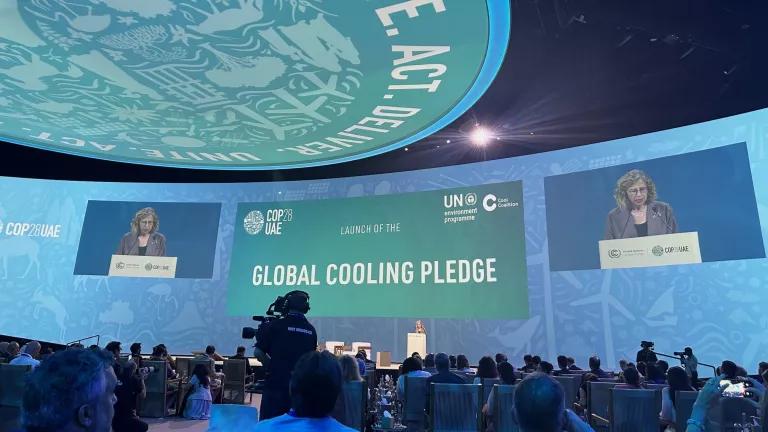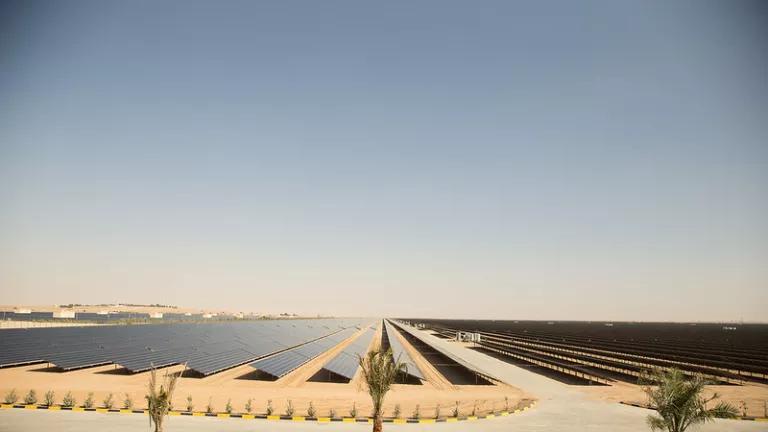Latin American Women, Powerful Agents Against Climate Change
The role that women play in their communities makes them crucial agents for climate action. Fortunately, this role has been recognized by several Latin American countries that have integrated it into their policy instruments and international climate commitments.
This post was written by Fabiola Hernández who is a Master of Environmental Management candidate at the Yale School of Forestry and Environmental Studies. Fabiola is a Speth Fellow for NRDC focusing on international climate issues with a focus on forestry and conservation in Latin America.
The Global Climate Action Summit (GCAS) held last week in California provided a venue for world leaders in business, civil society, and local government “to take ambition to the next level.” For many leaders this has meant illuminating the unique vulnerability that women face in a changing climate, but also elevating the role of women in achieving, and even surpassing, our global climate commitments. Women’s role in their communities make them crucial agents for climate action. Fortunately, this role has been recognized by several Latin American countries that have integrated it in their policy instruments and international climate commitments. The transition towards a new climate framework in 2020 brings an opportunity for these countries to operationalize their commitments and for others to look for pledges that include and benefit women.
Latin America is a region particularly vulnerable to climate change where yearly economic damages due to climate change are predicted to reach around $100 billion by 2050. Rural and indigenous women in particular have fragile livelihoods that rely heavily on local natural resources, which climate change is making harder to secure. Read more about how climate change impacts women here and here. Of the region’s 300 million women, 59 million live in rural areas. Forty percent of rural women engage in unpaid labor and have less access to land and other financial assets than men.
There is still work to do in the region to achieve gender equality in rights and opportunities. Yet, women in Latin America play critical roles in their communities and are key to securing food, resources, and income for their families. Especially in rural areas, women participate in productive activities and in natural resources management, for example, they account for 20 percent of Latin America's agricultural labor force.
Such roles and knowledge in different arenas, makes Latin American women powerful “agents of change,” able to make significant contributions to climate action and crucial to achieve a resilient future and make our communities thrive. In turn, empowering women and moving towards gender equality is critical to a thriving society and contributes to reducing climate change vulnerability.
A study found that giving women the same opportunities as men to participate in the economy, would add up to $28 trillion or 26 percent to annual global GDP by 2025. This is equivalent to the combined US and China economies. In addition, giving women the tools to plan the size and timing of their families, will slow population growth, and global carbon emissions will be reduced as much as 15 percent—the equivalent of stopping deforestation and forest degradation in the world. Environmentally, the UNDP noted that countries with higher representation of women in congress and political decision-making are more likely to ratify multilateral environmental agreements, set aside protected land areas, and prevent environmental degradation.
Recognizing the advantages of engaging women in climate action, countries in Latin America have kept gender equality and women’s empowerment in mind when devising climate policies. Peru and Mexico have included gender-related objectives in their climate change action plans whereas Bolivia is implementing projects to empower women in the agriculture sector. Read more about these policies here. Furthermore, countries in the region have included gender priorities and references to gender equality in their Nationally Determined Contributions (NDCs) submitted to the UNFCCC’s under the Paris Agreement—a key milestone in the global battle against climate change. Including gender in the NDCs is critical to ensuring equality and important to provide opportunities to operationalize national climate change policy and programming that would also be beneficial to women.
As of 2016, 40 percent (65 of the 161) NDCs submitted made at least one reference to “gender equality” and/or “women”, according to a review conducted by UNDP. A number of these NDCs belong to Latin American nations. The references to gender were included in different ways. Costa Rica’s NDC, for example, incorporates a commitment to supporting the participation of women in policymaking and climate action. Similarly, Honduras’ NDC recognizes that women must be considered in making decisions in a low-carbon society. Costa Rica and Mexico also note in their NDCs that gender equality, along with human rights, are cross-cutting aspects of their climate change policy.
Peru took further steps by developing a National Plan for Gender Equality and an Action Plan on Gender and Climate Change and referenced them in its NDC. Peru brought the gender-mainstreaming approach of those plans into the NDC noting that all national climate change instruments must incorporate a gender perspective to ultimately ensure active, full, and equal participation of women and men in consultations and decision-making processes related to natural resources, management of GHG emissions, and generation of mitigation and adaptation to climate change strategies.
Following the examples of Costa Rica, Peru, Mexico, and Honduras, there is an opportunity for other Latin American countries to review and enhance these instruments in terms of gender inclusion in the next NDC round in 2020. Even before this, measures and policies that recognize and support the roles that women play in both adaptation and mitigation to climate change could be put in place. After all, this will result in better climate change outcomes.
GCAS provided a stage to celebrate our global achievements, but it was also an opportunity to build the momentum for deeper, smarter worldwide commitments that include women at the decision table. Doing so will be key in translating the ambitious goals and aspirations set forth in the NDCs into concrete actions that manage to stabilize the earth’s climate while creating better conditions and opportunities for women.




